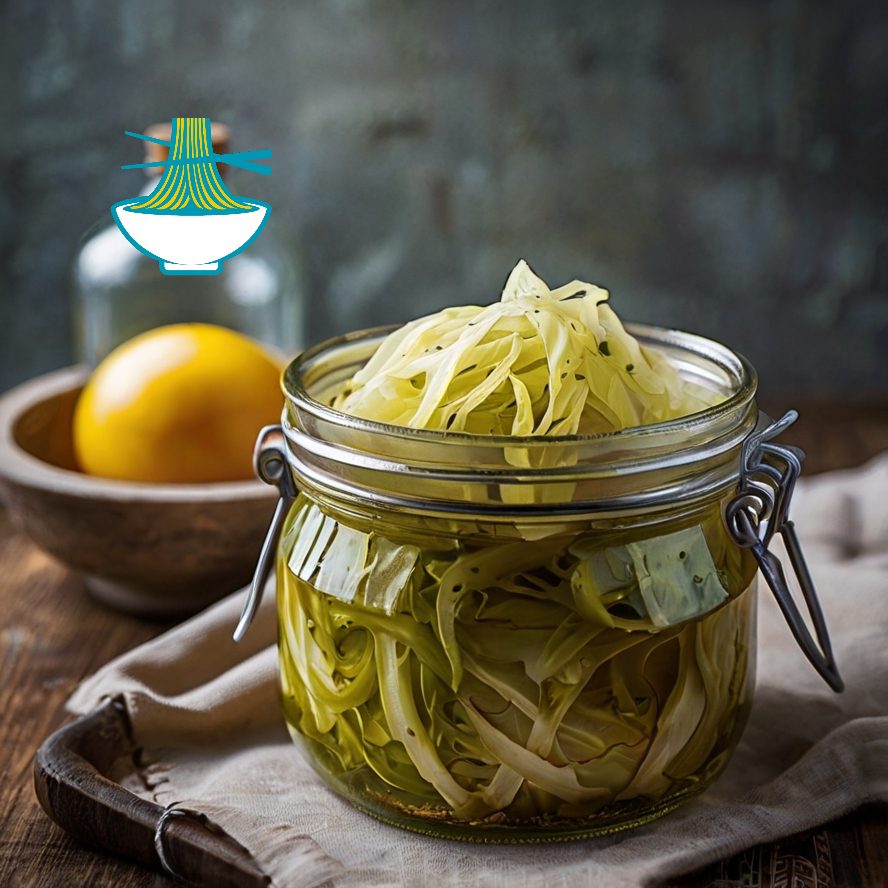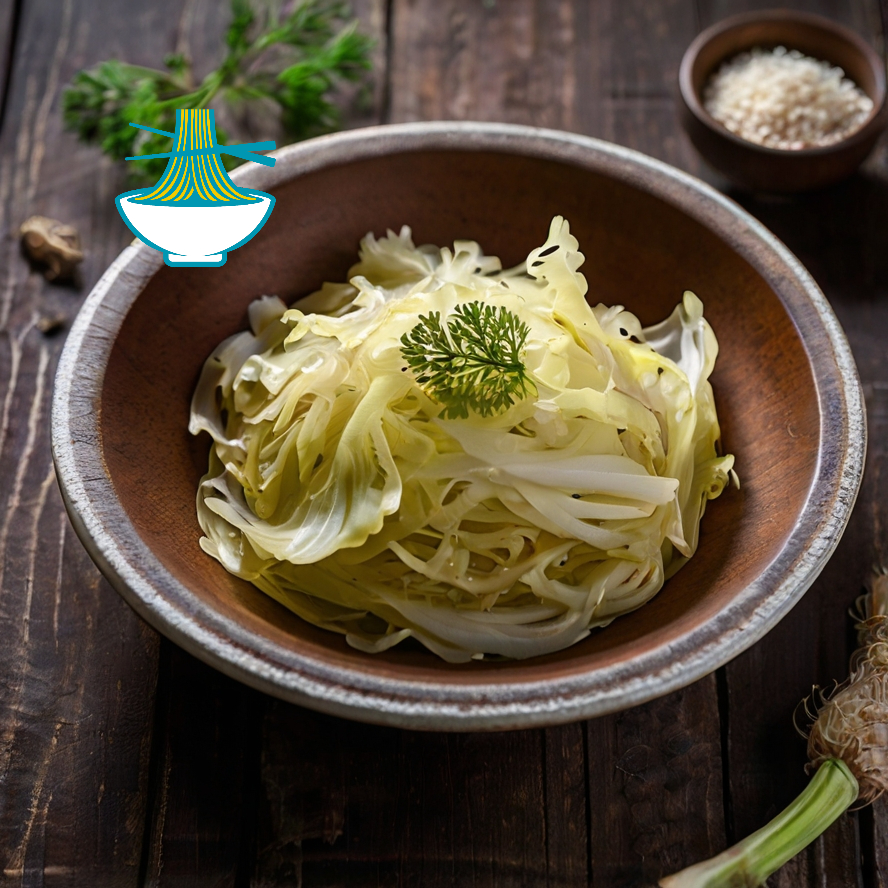Discover the perfect recipe for Kisela Kupus, a flavorful pickled cabbage used in a variety of dishes. Learn how to make this traditional pickled cabbage with step-by-step instructions, tips for best results, and ideas for incorporating it into your meals.
Ingredients:
- 1 large head of cabbage
- 1 tablespoon salt (preferably sea salt or kosher salt)
- 1 tablespoon sugar
- 1 teaspoon caraway seeds
- 3 cloves garlic, peeled and crushed
- 1 tablespoon mustard seeds (optional)
- 1 bay leaf
- Water (enough to cover the cabbage)
Instructions:
Prepare the Cabbage:
- Remove the outer leaves from the cabbage and discard any damaged leaves.
- Cut the cabbage into quarters and remove the core. Slice or shred the cabbage into thin strips.
Make the Brine:
- In a large bowl, combine the salt, sugar, caraway seeds, and optional mustard seeds.
- Add the shredded cabbage and toss well to distribute the seasoning evenly. Let it sit for about 30 minutes to allow the cabbage to release some of its moisture.
Pack the Jar:
- Sterilize a large jar or several smaller jars. You can do this by boiling them in water for 10 minutes.
- Pack the cabbage mixture tightly into the jar, pressing it down as you go. Add the crushed garlic and bay leaf between layers of cabbage.
Prepare the Brine Solution:
- Boil water and let it cool slightly. Pour the water over the cabbage, ensuring it is fully submerged. You can add more salt to the water if needed to match the saltiness of your taste.
Seal and Ferment:
- Seal the jar tightly with a lid. Place it in a cool, dark place for 1-2 weeks to ferment. Check daily and press down the cabbage if it floats above the brine.
Taste and Store:
- After 1-2 weeks, taste the cabbage. If it has reached the desired level of sourness, transfer the jar to the refrigerator to stop the fermentation process. The Kisela Kupus can be eaten immediately but develops a stronger flavor over time.
Serving Suggestions:
- Kisela Kupus is perfect as a side dish, in salads, or as an ingredient in stews and soups. Try it with meats or as a topping for sandwiches.
Enjoy your homemade Kisela Kupus!
Nutritional values
Cabbage (1 large head)
- Calories: 25 kcal
- Carbohydrates: 6g
- Fiber: 2.5g
- Vitamin C: 36.6mg (61% of the daily value)
Benefits:
- Low in calories but high in fiber, promoting digestive health.
- Rich in vitamin C, supporting immune function.
- Contains antioxidants that may reduce inflammation and protect against certain diseases.
Salt (1 tablespoon, preferably sea salt or kosher salt)
- Calories: 0 kcal
- Sodium: ~39g (depending on the salt type)
Benefits:
- Essential for fermentation, helping to preserve the cabbage and promote the growth of beneficial bacteria.
- Enhances the flavor of the sauerkraut.
Additional Ingredients:
Sugar (1 tablespoon)
- Calories: 387 kcal
- Carbohydrates: 100g
Benefits:
- Adds a slight sweetness to balance the tangy flavor of the sauerkraut.
- Can help speed up the fermentation process by feeding the bacteria.
Caraway Seeds (1 teaspoon)
- Calories: 333 kcal
- Carbohydrates: 50g
- Fiber: 38g
Benefits:
- Adds a distinctive, slightly nutty flavor to the sauerkraut.
- Rich in fiber and may aid digestion and relieve bloating.
Garlic (3 cloves, peeled and crushed)
- Calories: 149 kcal
- Carbohydrates: 33g
- Protein: 6g
Benefits:
- Adds flavor and offers antimicrobial properties.
- Supports heart health and has anti-inflammatory effects.
Mustard Seeds (1 tablespoon, optional)
- Calories: 508 kcal
- Carbohydrates: 28g
- Fiber: 12g
Benefits:
- Adds a sharp, tangy flavor if included.
- Contains compounds that may have antioxidant and anti-inflammatory properties.
Bay Leaf (1)
- Calories: 313 kcal
- Carbohydrates: 75g
- Fiber: 26g
Benefits:
- Adds subtle herbal notes to the sauerkraut.
- Contains vitamins A and C, as well as folic acid.
Liquid:
Water (enough to cover the cabbage)
Benefits:
- Creates the brine necessary for fermentation.
- Keeps the cabbage submerged, which is essential for proper fermentation.
This homemade sauerkraut recipe is a simple yet nutritious way to enjoy the benefits of fermented foods. Rich in probiotics, sauerkraut supports gut health, digestion, and immune function. The combination of cabbage, salt, and optional flavorings like caraway seeds and mustard seeds creates a tangy, flavorful addition to meals that also provides vitamins, minerals, and beneficial bacteria.


Comments